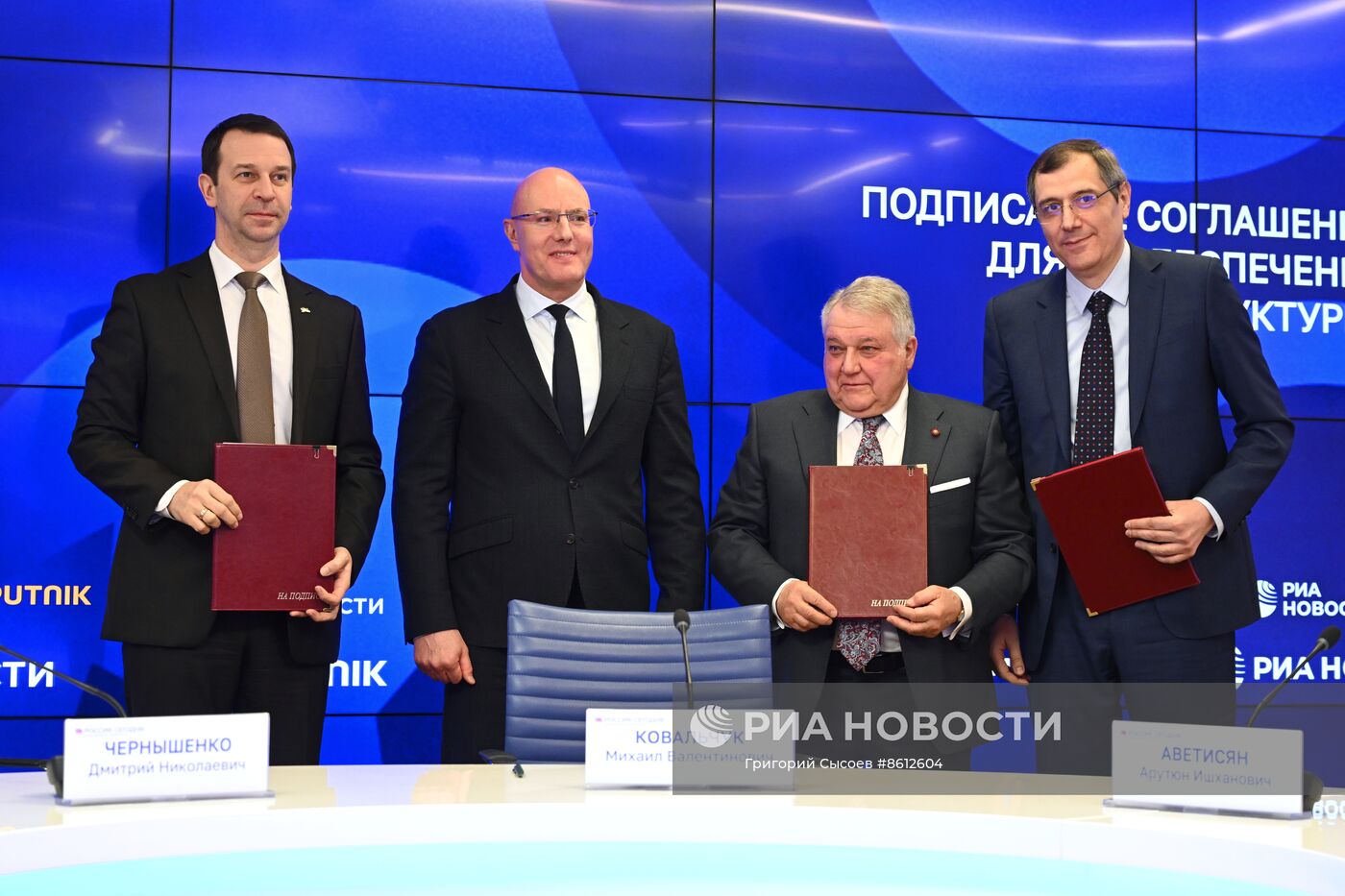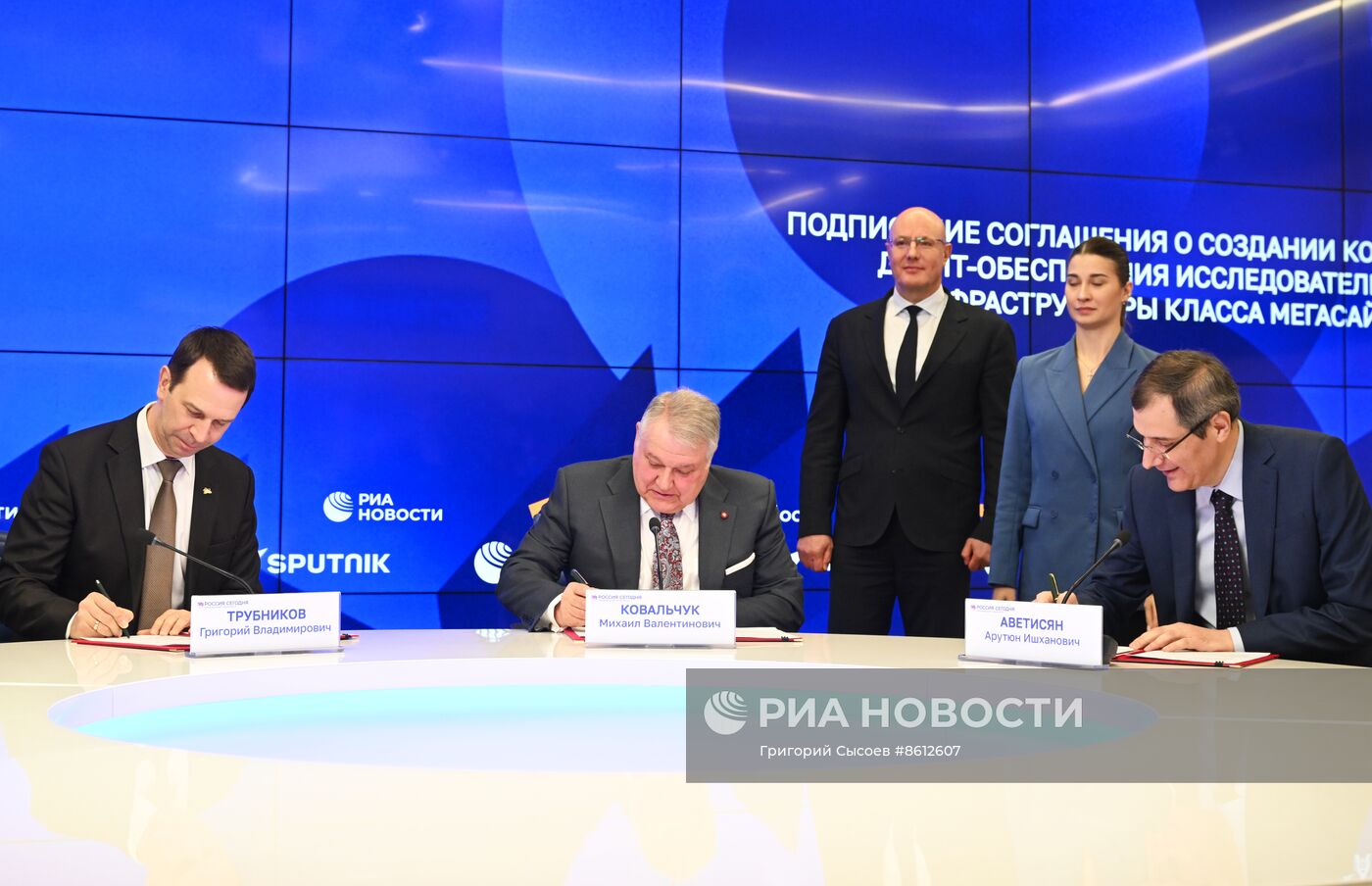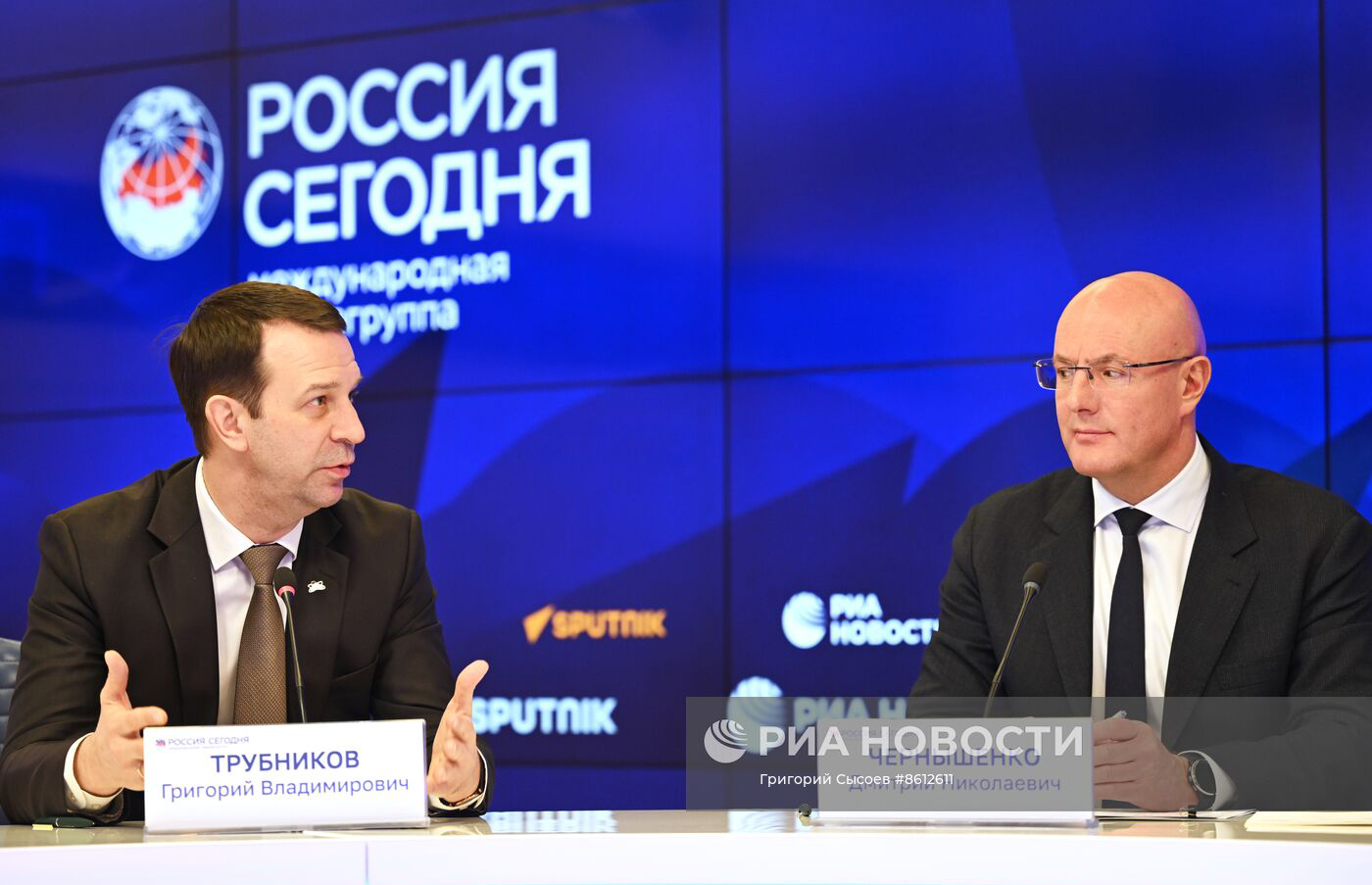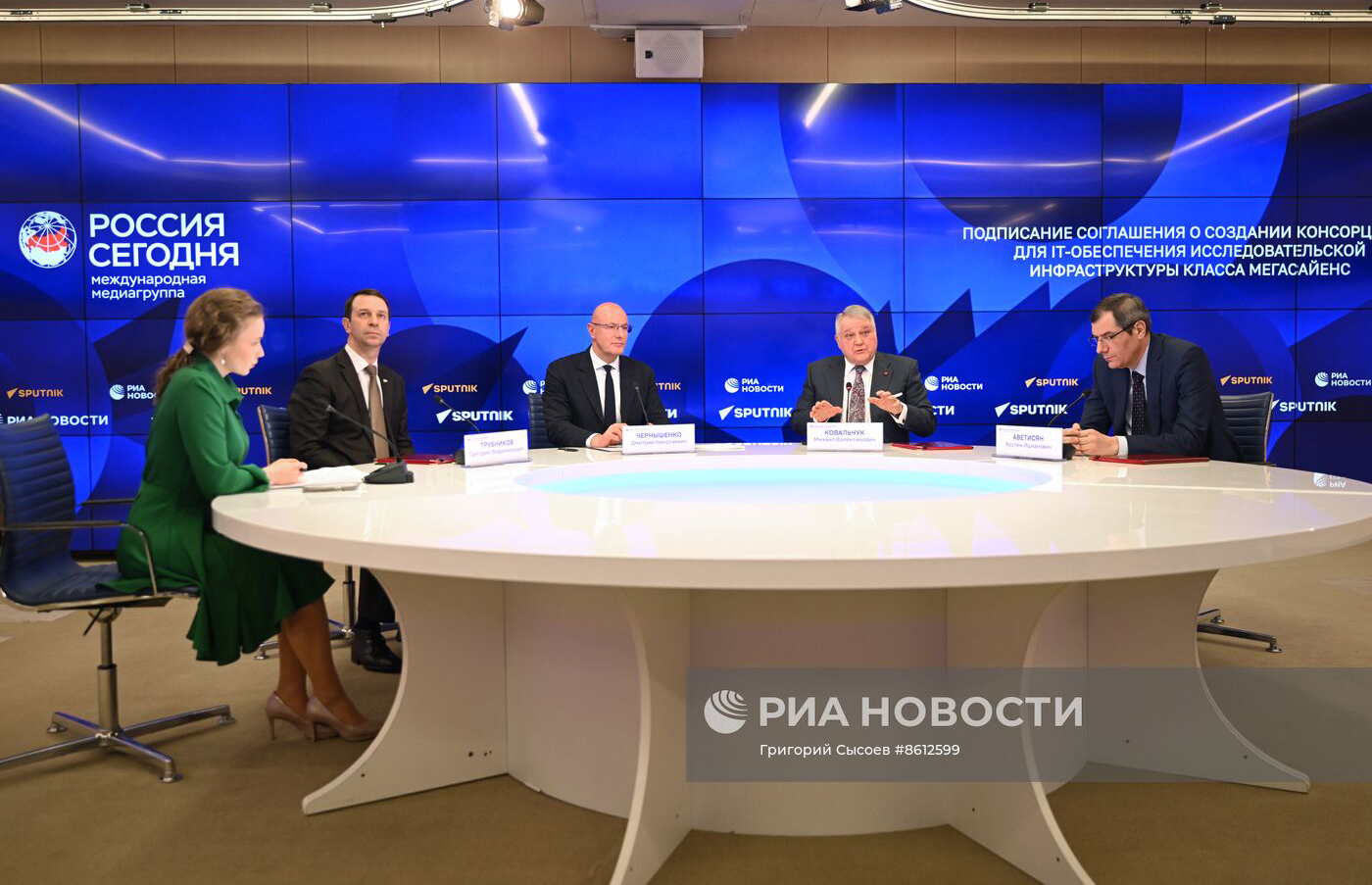JINR becomes part of Russian IT consortium
News, 05 February 2024
On 5 February, an agreement on the establishment of a consortium for IT support of megascience projects was signed. The grand ceremony took place in the Presidential Hall of the International Multimedia Press Centre “Russia Today” with the participation of Deputy Prime Minister of the Russian Federation Dmitry Chernyshenko. JINR Director Grigory Trubnikov, President of the Kurchatov Institute National Research Centre Mikhail Kovalchuk, and Director of the Ivannikov Institute for System Programming of the Russian Academy of Sciences Harutyun Avetisyan signed the document.
 Photo: © RIA Novosti Mediabank
Photo: © RIA Novosti Mediabank
The consortium aims to address the issue of uniting infrastructure and skills in the field of IT technologies in Russia to ensure the functioning and development of a national network of megascience research facilities and achieve breakthrough scientific results. In addition, the consortium will become the basic computing infrastructure for the National Genom Database and bioresource centres as a main component of the genetic research infrastructure.
“Megascience facilities can and should serve as the basis for developing our own groundbreaking solutions. Thanks to them, we can collect unique scientific data, the processing of which requires large computing power. This consortium will allow us to transfer hundreds of petabytes of data per year by the end of this decade. It will use the National Research Computer Network, the network that more than 80% of Russian scientific organizations are already connected to,” Dmitry Chernyshenko stressed.
“Thanks to the GRID infrastructure and the NICA Megascience Project, a product of collaborative effort of the Member States of the Joint Institute with a significant contribution from the Russian Federation, dozens of countries around the world are ready to work and conduct research on the territory of Russia. This consortium provides the potential of over 30 years of JINR’s experience in the field of distributed GRID computing both for CERN and for many European and global projects; the computing resources of the Kurchatov Institute and a number of RAS institutes as part of the National Research Computer Network of Russia; and advanced technologies and significant achievements in the field of software analysis of the Institute of System Programming. Computing is an important component of any scientific experiment. I’m sure that our consortium will be expanding,” Grigory Trubnikov said.
Mikhail Kovalchuk highlighted the significance of developing advanced computer technologies that can efficiently work with artificial intelligence. These technologies require extensive amounts of energy; one solution could be, for example, the NRC neuromorphic computer, which consumes 1000 times less energy. The consortium can become an important basis for the rapid achievement of such breakthrough results.
“What we have established is a qualitatively new thing,” Mikhail Kovalchuk emphasised.” He noted that such an information and communication network will engage Russian scientists in joint work, with the potential to expand to the CIS countries, the EAEU, the SCO, and the BRICS. “A new area of global innovative research is genetics. Along with the megascience projects, it is now the largest consumer of IT resources,” Mikhail Kovalchuk said.
Harutyun Avetisyan commented the establishment of the consortium: “My dream is for us to increase the labour productivity of our scientists, programmers, psychologists, and geneticists not just by percentages, but by orders of magnitude for the accelerated implementation of new technologies.”
At the end of the ceremony, Dmitry Chernyshenko called the signed agreement a significant event as part of the Decade of Science and Technology being held in Russia in 2022-2031.



